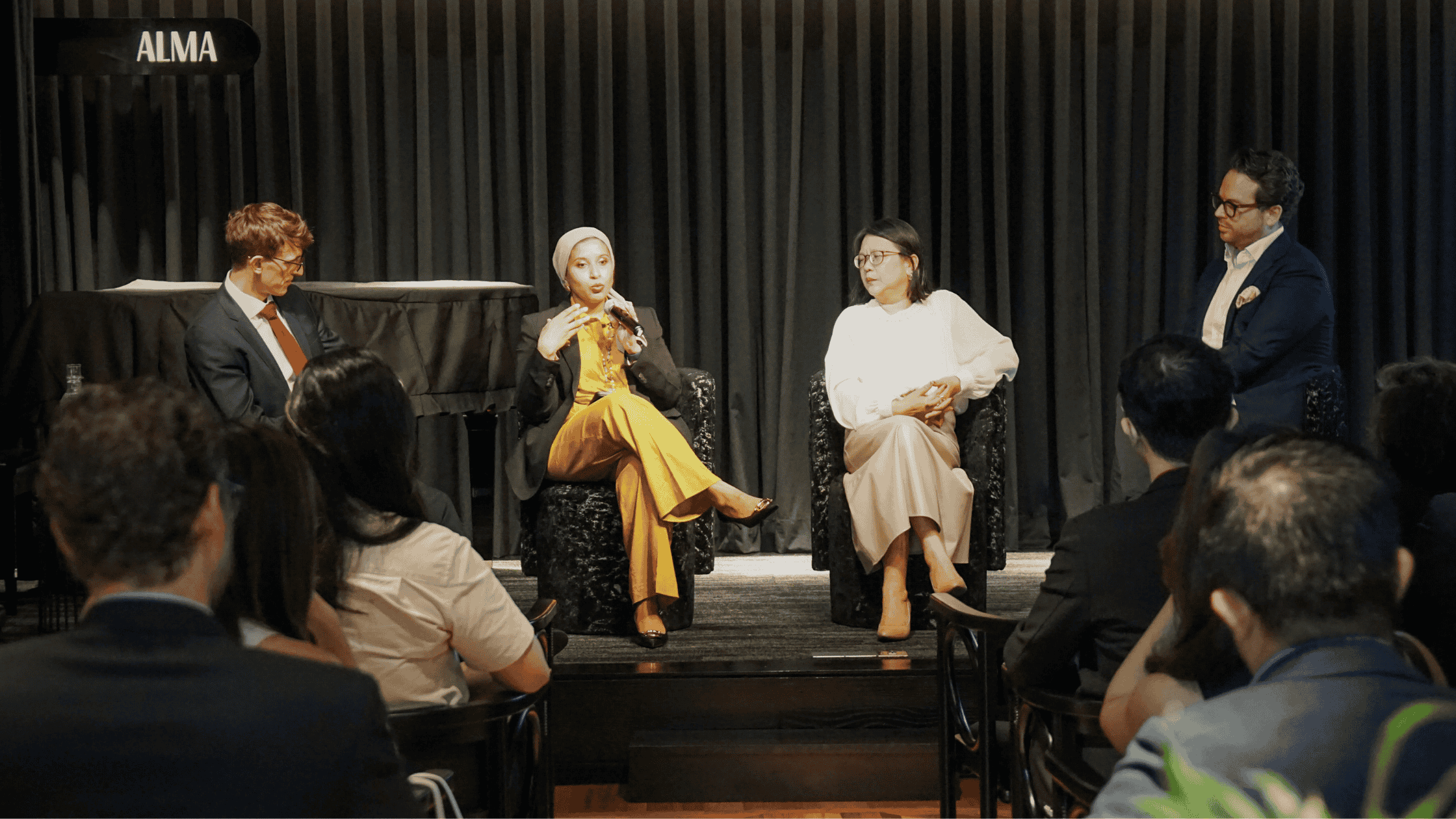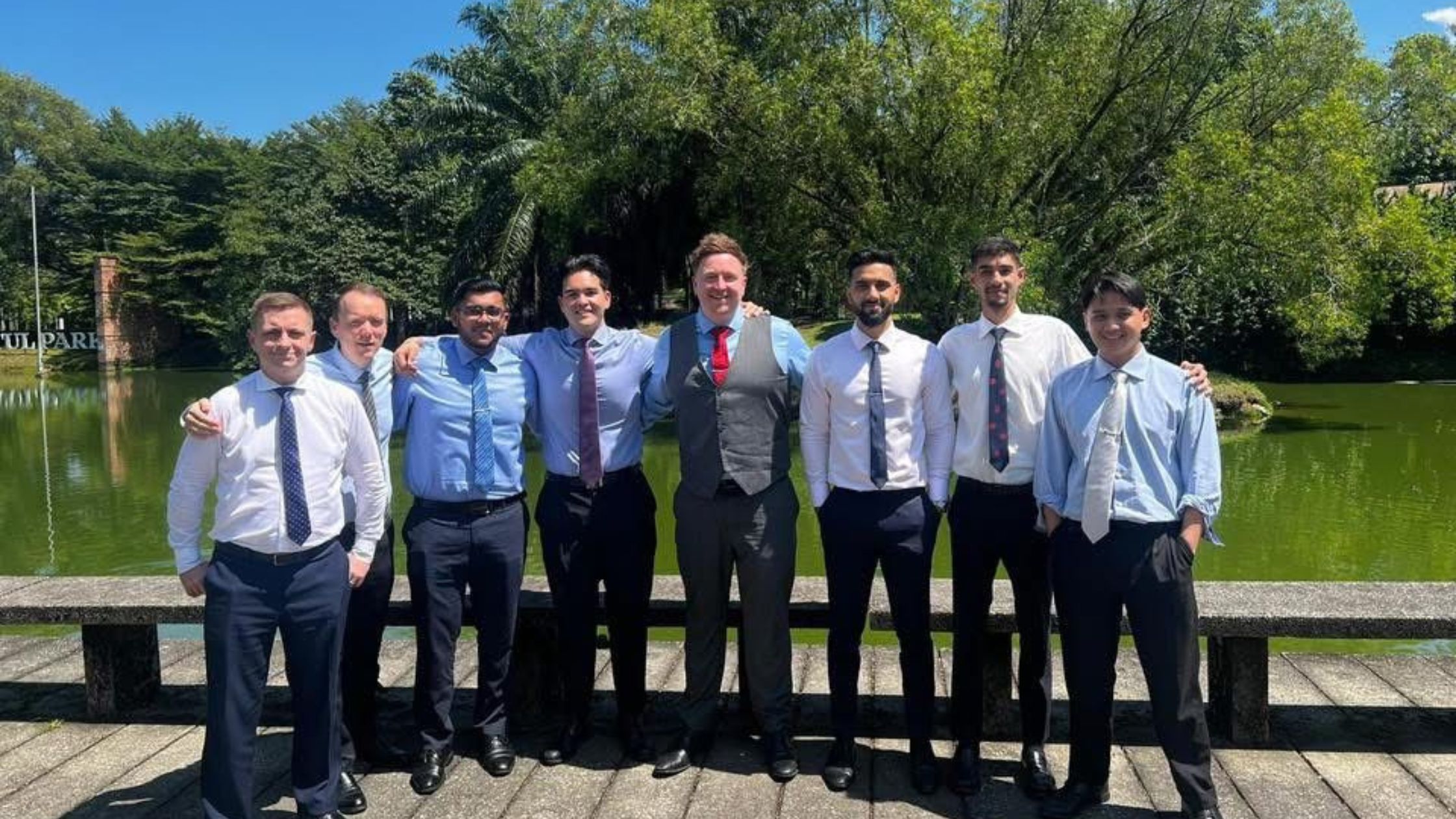Bringing Global Family Office Best Practices to Malaysia: A Recap of Our Events with Evelyn Partners

In September 2025, Melbourne Capital Group partnered with Evelyn Partners to host three family office-themed events across Kuala Lumpur and Penang. The centerpiece of this initiative was our Family Office Panel discussion with Maybank Trustees, and Chooi & Company Advocates & Solicitors, which brought together industry leaders to explore how global best practices can be applied to Malaysia's emerging family office landscape.
Family Office Services in Malaysia: A Growing Opportunity
Family offices remain an under-discussed field in Malaysia, yet the country's wealth landscape is evolving rapidly. As Malaysian families accumulate multi-generational wealth, the need for sophisticated succession planning and wealth preservation strategies has never been more pressing.
.png)
Our panel event featured James von Simson, Partner at Evelyn Partners and Deputy Chair of STEP, alongside Nor Fazlina Mohd Ghouse, CEO of Maybank Trustees and Nicole Wee, Partner at Chooi & Chooi Advocates & Solicitors. Together, they addressed the unique challenges and opportunities facing Malaysian families as they navigate the complexities of wealth transfer across generations.

Succession Planning in Malaysia: Building Structures Early
Nor Fazlina, CEO of Maybank Trustees, offered a particularly insightful perspective on Malaysia's position in the family office ecosystem:
"In Malaysia, many still see succession planning as simply deciding who gets what and when. But because Asia is at the formation stage, families have a unique opportunity to build optionality into their structures early, through family trusts, Labuan foundations and bespoke governance tools such as the Securities Commission's Single Family Office framework, before problems surface later."
This observation highlights a crucial point: whilst Malaysia may be newer to formal family office structures compared to jurisdictions like Singapore or Hong Kong, this presents an advantage rather than a disadvantage. Families can learn from the mistakes made elsewhere and implement robust, flexible structures from the outset.
Long-Term Investment Strategy for High Net Worth Families
James von Simson's recent article in STEP Journal, "Skill or Luck?", provides important context for the investment philosophy that should underpin family office strategies. His research demonstrates that whilst short-term market returns are heavily influenced by luck—with approximately 62% of one-year returns coming from multiple expansion or contraction—long-term returns tell a different story. After ten years, roughly 86% of returns derive from underlying fundamentals rather than market sentiment.
This finding has profound implications for family offices. As James argues, successful long-term investing requires "recognising the role skill and luck plays in controlling for outcomes." Rather than chasing the "best ideas" of the moment, families should build portfolios of "third-, fourth- and fifth-best ideas" that prove resilient over time.
For Malaysian families establishing their wealth management frameworks, this emphasis on patience and time horizon is particularly relevant. The goal isn't to outperform the market in any given year, but to preserve and grow wealth across generations.
Wealth Management in Malaysia: Strategic Asset Allocation
During our events, we emphasised the importance of thinking about family wealth in distinct categories, each serving different purposes:
Lifestyle Assets: Family homes, holiday properties, art, and jewellery provide emotional returns but limited inflation protection.
Cash Reserves: Bank deposits offer liquidity for day-to-day spending but typically generate negative real returns after inflation.
Nest Egg: Long-term, globally diversified portfolios designed to preserve wealth in real terms, targeting inflation plus 2-4% returns.
Growth Capital: Private equity, venture capital, and commercial real estate offering potential for significant long-term appreciation.
Business Assets: Core operating businesses that may require different governance and planning considerations.
This framework helps families move beyond viewing their wealth as a single monolithic entity and instead consider how different assets serve different purposes within the overall family strategy.
The Role of Professional Advisors in Multi-Jurisdictional Wealth Planning
Perhaps one of the most important themes to emerge from our panel discussion was the critical need for professional collaboration in family office structures. Independence in wealth management doesn't mean isolation—the most effective succession strategies emerge when expertise is shared seamlessly across disciplines.
Successful family offices require coordination between:
- Tax advisors and accountants ensuring structures are optimised across all jurisdictions
- Wealth managers and financial planners aligning investment strategy with legal and tax considerations
- Lawyers and solicitors providing structural foundations that integrate with financial realities
- Financial service providers including platforms, portfolio managers, and corporate trustee services
When these professionals operate in silos, families face suboptimal outcomes, conflicting advice, and missed opportunities. Our panel highlighted how coordinated advisory teams deliver superior results through integrated expertise.
Keys to Preserving Family Wealth Across Generations
Research consistently shows troubling statistics: approximately 70% of wealthy families lose their wealth by the second generation, and 90% see complete wealth dissipation by the third generation. Our discussions identified six fundamental principles that can help families avoid this fate:
- Values & Mission: Defining family values and legacy creates the foundation for all decisions
- Heir Preparation: Comprehensive education and structured mentorship ensure capability matches opportunity
- Family Governance: Formal governance structures provide clear decision-making frameworks
- Open Communication: Transparent dialogue aligns family members and prevents conflicts
- Financial Education: Teaching financial literacy to younger generations builds responsible stewardship
- Purpose-Driven Wealth: Philanthropy and meaningful wealth deployment create lasting impact

Malaysia's Family Office Opportunities
The events in Kuala Lumpur and Penang represented more than just educational discussions, they marked an important step in Malaysia's journey towards sophisticated family office practices. With frameworks like the Securities Commission's Single Family Office guidelines now in place, alongside established tools like Labuan foundations and family trusts, Malaysian families have unprecedented options for structuring their wealth.
What's needed now is continued dialogue between families, advisors, and regulators to ensure these structures are implemented thoughtfully and effectively. The goal isn't to simply transplant structures from other jurisdictions, but to adapt global best practices to Malaysia's unique legal, tax, and cultural context.
Melbourne Capital Group's Role
At Melbourne Capital Group, we recognise that our role extends beyond investment management. We serve as a bridge between global best practices and local implementation, helping families navigate the complexities of multi-jurisdictional wealth whilst remaining grounded in their specific circumstances and objectives.
Our partnership with Evelyn Partners, Maybank Trustees, and Chooi & Chooi Advocates & Solicitors reflects our commitment to providing families with access to world-class expertise across all the disciplines required for effective wealth preservation.
As James von Simson noted in his STEP article, successful long-term investing comes "not from exclusivity, sophistication or greater resources, but from the confidence of patience." The same principle applies to family office structures; success requires thoughtful planning, professional collaboration, and the discipline to think in generational rather than quarterly timeframes.
For Malaysian families beginning this journey, the opportunity to build robust, flexible structures from the foundation stage is a genuine advantage. By learning from global experience whilst adapting to local realities, Malaysian family offices can establish frameworks that serve not just the current generation, but those yet to come.
If you'd like to learn more about how Melbourne Capital Group can assist your family in implementing these principles, please don't hesitate to reach out to our team at info@melbournecapitalgroup.com
Explore our Insights
Our team of global experts share their perspective on markets and news from the company.

.webp)



